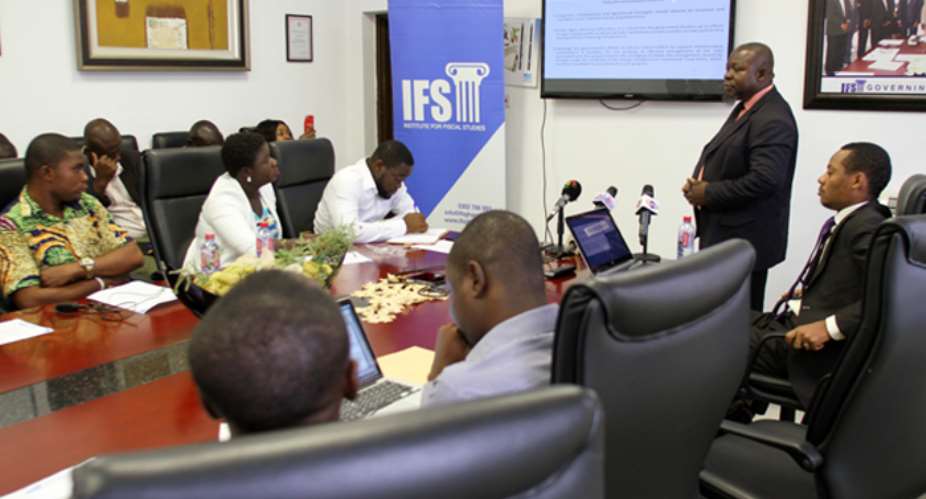Dr Said Boakye, a senior fellow of the Institute of Fiscal Studies (IFS), has indicated that even though government's broad-based approach to economic growth is commendable, its programmes and initiatives are many, grandiose and expensive.
“How can the government fund these numerous and grandiose programmes and initiatives given that the country is on a fiscal consolidation path; revenue has consistently fallen short of initial budgets since 2012, and presently there is no available fiscal space, since three rigid expenditure items in the of earmarked expenditure, compensation of employees and debt service expenditure have consistently exceeded total revenue and grants since 2013?”
Dr Boakye said in 2017 for instance, the three rigid expenditure items alone amounted to GH¢46.35 billion, exceeding total revenue and grants of GH¢41.50 billion by 11.7 percent.
“Indeed, these programmes and initiatives can only be accommodated if the government resorts to large amounts of borrowing.”
He said government's recent announcement of its desire to borrow GH¢50 billion in a century bond was clearly the result of its inability to raise large amounts of money to fund its numerous programmes and initiatives.
“Large amount of borrowing stands the risk of reversing the fiscal gains made in the past two years because it will impose additional significant debt service burden; the country's fiscal state continues to be weak and fragile while also the large amount of borrowing can plunge the country into serious fiscal difficulties and macro-economic instability.”
Dr Boakye said while increased pace of future growth could not be completely ruled out since it depends on how the borrowed amounts were invested, historical records showed that Ghana has largely not been able to derive significant returns on public investments in terms of real GDP growth.
He gave instances from 1993-2000 and 2013-2016.
According to him, borrowing huge sums of money to fund the numerous programmes and initiatives would have the potential to reverse the fiscal gains made and throw the country deeper into fiscal and debt distress since the real GDP growth rate might not increase as expected due to possible macroeconomic instability that might arise.





 We’ll protect state wealth from opaque deals – Prof Jane Naana
We’ll protect state wealth from opaque deals – Prof Jane Naana
 Mauritania president says running for second term in June polls
Mauritania president says running for second term in June polls
 I won't ever say I was a mere driver’s mate' — Prof. Opoku-Agyemang
I won't ever say I was a mere driver’s mate' — Prof. Opoku-Agyemang
 2024 polls: 'EC struggling to defend credibility'— Prof. Opoku-Agyemang
2024 polls: 'EC struggling to defend credibility'— Prof. Opoku-Agyemang
 Akufo-Addo gov't's 'greed, unbridled arrogance, unrestrained impunity, sheer dis...
Akufo-Addo gov't's 'greed, unbridled arrogance, unrestrained impunity, sheer dis...
 Election 2024: Ghana needs an urgent reset, a leadership that is inspiring – Ma...
Election 2024: Ghana needs an urgent reset, a leadership that is inspiring – Ma...
 Partner NDC to rollout a future of limitless prospects – Prof Jane Naana Opoku-A...
Partner NDC to rollout a future of limitless prospects – Prof Jane Naana Opoku-A...
 NPP will remain in gov’t till Jesus comes — Diana Asamoah
NPP will remain in gov’t till Jesus comes — Diana Asamoah
 Sunyani Technical University demands apology from former SRC president over sex-...
Sunyani Technical University demands apology from former SRC president over sex-...
 'Dumsor' was resolved by Mahama but ‘incompetent' Akufo-Addo has destroyed the g...
'Dumsor' was resolved by Mahama but ‘incompetent' Akufo-Addo has destroyed the g...
